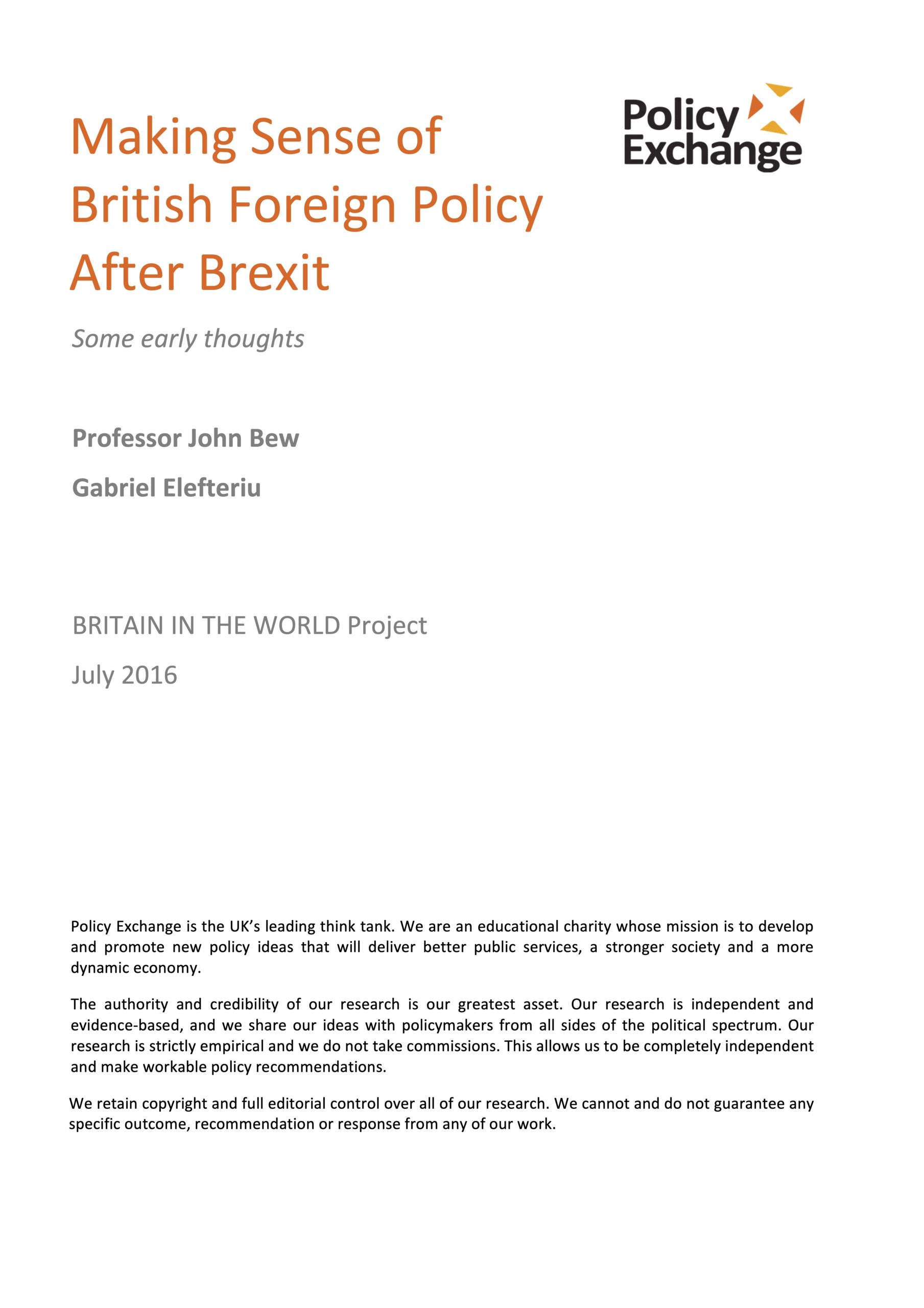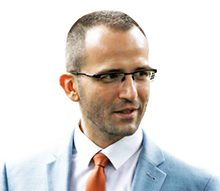
Making Sense of British Foreign Policy After Brexit
The Policy Exchange Britain in the World Project’s latest report warns that Brexit cannot be allowed to become the latest instalment of a narrative of decline in Britain’s influence on the world stage that has been building up in recent years. The government must ignore the ‘siren calls’ that Brexit equals isolationism and swiftly and decisively reset the UK’s relations with key allies, especially the United States, Germany and a number of other EU member states, particularly those in the East.
The report, authored by Professor John Bew of King’s College London, and Gabriel Elefteriu, says that it is critical to reassure those key allies that Britain will not look through a short-term, narrow lens and adopt a ‘neo-Elizabethan’ age approach to foreign policy by simply favouring bilateral relations with emerging markets.
The paper’s recommendations for the incoming government include:
- Doubling down on our ‘special relationship’ with the United States to ensure the next President continues to play the leading role in global foreign and defence policy
- Ensuring that our new relationship with China and our potential ‘pivot to Asia’ does not alienate the US and is not seen simply through the lens of trade and business but also security and political stability
- Tying future defence spending to a broader industrial strategy to boost the economy in areas of the UK such as Scotland and the North East
In the short term, the UK should reassert its commitment to NATO by signalling an intent to raise defence spending above the 2% GDP target, appointing 20 more trade negotiators to work with the new International Trade Secretary, bringing forward the scheduled 2018 Commonwealth Heads of Government meeting to autumn 2017 and to seek a special summit with the next President of the United States.
Professor John Bew said: “Post Brexit there is an urgent need to establish a greater coherence in British foreign policy. We need a vision for a new approach that will secure the country’s long-term interests, security and prosperity in a changing world.
“It is of course important to learn the lessons from the Chilcot Report but we must not shy away from playing a leading role on the global stage. The re-orientation of our foreign policy should be conducted with cool-headedness and self-confidence.”


